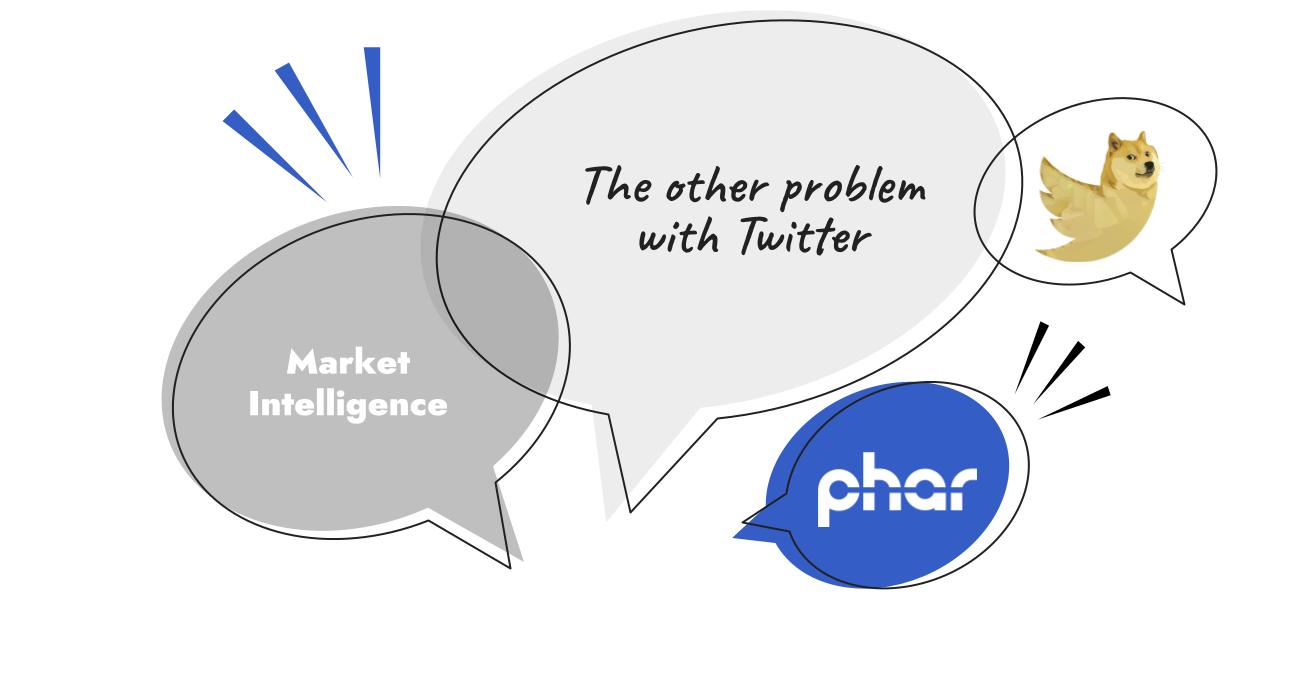On March 29, Twitter made the surprise announcement that the cost of accessing its API (application programming interface) would be increased significantly. The news came as a bombshell to a vast ecosystem of companies and information processing and intelligence platforms that had relied on Twitter data since their inception. As a company specializing in market intelligence (and therefore active listening to weak signals), we experienced this crisis at close hand.
Twitter’s API saga started when the company announced in February that it is ending free API access in just a matter of days. After heavy criticism, Elon Musk said that the company will provide a free tier to bots providing “good content.” (...) More than 45 days later, the company finally provided info about the new APIs.
It's worth noting that, unlike the big social platforms such as Facebook and Linkedin, Twitter was one of the few in this group to allow (and resell) massive data extraction/writing across the entire network. In contrast, networks such as Linkedin and Facebook are much more hermetic, in order to concentrate information and interactions within the platform. Others, such as Reddit, allow this, but as accounts are mostly anonymous, it's difficult to extract intelligence from them.
So, with its 450 million active subscribers, Twitter offered a unique source for listening to markets, trends, opinions, issues, etc., and an entire ecosystem was fed on it to interpret and analyze this data. For example, we could access filtered feeds to feed our thematic models and discover relevant content, then through the API, follow specific entities and retrieve their feeds to weight the value of the signal found.
TO BETTER FINANCE TWITTER
To make the case for Elon Musk, it's true that there were a large number of small bots that simply exploited the free APIs without adding any value for the social network. With the network's financial difficulties, it was natural to want to monetize access to this ecosystem.
"There are a ton of useful bots out there, but no effort has been made to categorize and target them. The change implemented will have the opposite effect of the declared intention. It hurts valuable apps/plugins (those that were paying a fair share) while continuing to enable low value-added bots (those that were parasitizing the system)."
A PRICE INCREASE THAT TURNED THE ECOSYSTEM UPSIDE DOWN
The substantial increase (nearly 800%) in API access costs has therefore undermined the business model of a very large number of companies in this ecosystem, some of which were forced to cease operations on May 1, 2023. Ironically, despite Elon Musk's "intentions" to democratize information, it is only the very largest companies that can now afford API access. As a result, few experts in our ecosystem have seriously considered that Musk would seek to kill this ecosystem, just as many of us believe that this is what makes Twitter so special.
But new charges, (...) suggest that most organizations that have relied on API access to conduct research will now be priced out of using Twitter.
Twitter's new API pricing is killing many Twitter apps that can't pay $42,000 per month.
THE ACADEMIC ENVIRONMENT ALSO AFFECTED (APIv2 for Academic Research)
In addition to the private sphere, many research centers will have to find alternative ways of listening for weak signals on the various issues facing the world; because to study and combat fake news, hate speech, political polarization and radicalization, many research centers and observatories depended on this source of information.
In a way, Twitter was an important asset for the community.
“I don’t know if there’s an academic on the planet who could afford $42,000 a month for Twitter,”
Jeremy Blackburn - University in New York
WHAT'S NEXT FOR SOCIAL LISTENING???
The reality is that the changes brought about by Twitter will probably have an impact on all but the largest social media management platforms, most of which are much more focused on analysis.
It will be very interesting to see how the ecosystem is restructured around social networks, some of which are emerging and aiming to democratize information.
May 26, 2023
